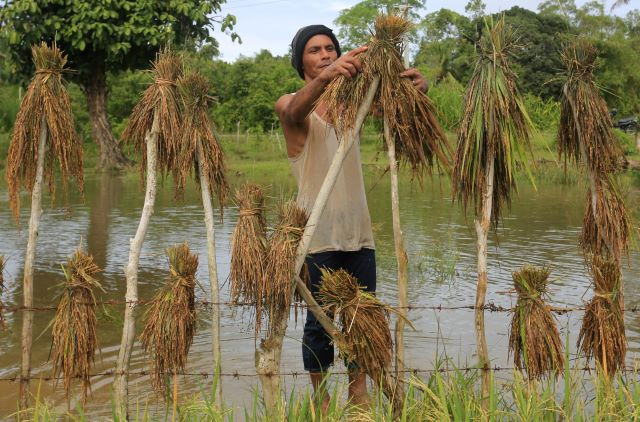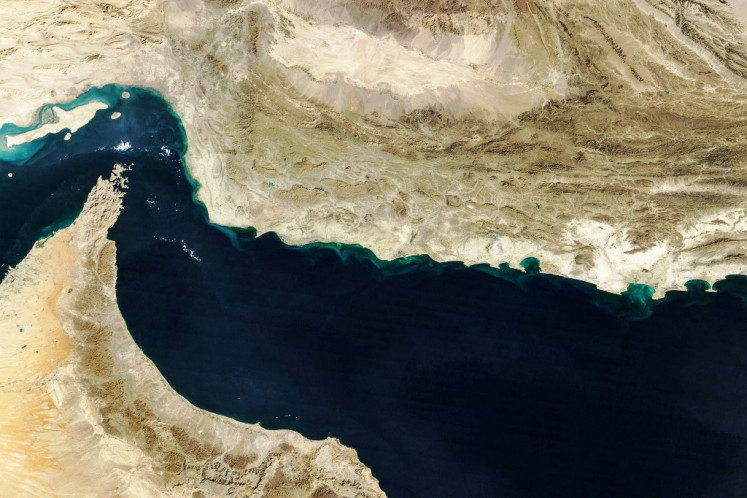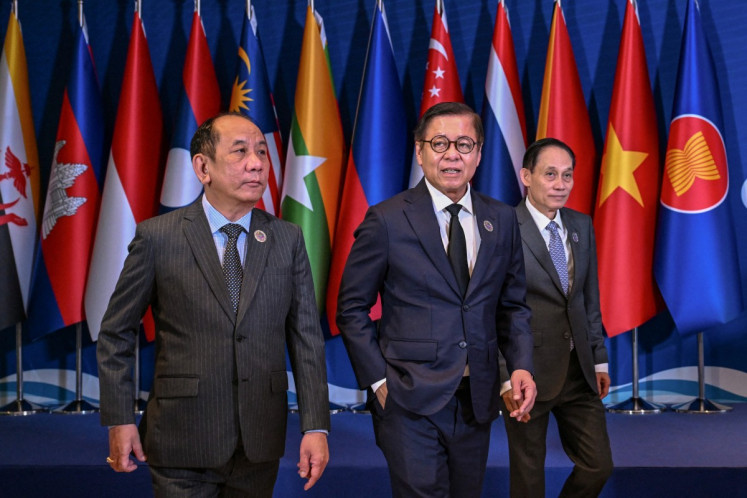Popular Reads
Top Results
Can't find what you're looking for?
View all search resultsPopular Reads
Top Results
Can't find what you're looking for?
View all search resultsIndonesia must resist EU’s trade talk demands that undermine farmers’ rights
The EU’s demand that Indonesia implement UPOV 1991 is extremely troubling as UPOV 1991 offers an inflexible legal framework that severely restricts farmers’ rights, especially their right to freely use, save, exchange and sell farm-saved seeds.
Change text size
Gift Premium Articles
to Anyone
I
ndonesia is a diverse agricultural nation with a wealth of traditional knowledge and practices related to agrobiodiversity that are passed down through generations. Small family farms with an average land holding of 0.6 hectare make up 93 percent of its agricultural land. These smallholder farmers play an essential role in food production and food security.
And yet the rights of these smallholder farmers will be undermined if Indonesia agrees to the European Union’s demand – in the ongoing EU-Indonesia trade negotiations – that Indonesia offers plant variety protection (PVP) in accordance with the 1991 Act of the International Convention for the Protection of New Varieties of Plants (UPOV 1991).
Indonesia must resist EU’s demands for UPOV-compliant PVP law in the ongoing Indonesia-EU Comprehensive Economic Partnership Agreement (CEPA) trade negotiations because the human rights and livelihoods of smallholder farmers – and the country’s food security – are at stake.
In the last two decades, there has been increasing recognition of the importance of farmers’ ability to save, exchange and sell seeds for the preservation of agrobiodiversity. Farmers’ rights were first recognized in international law in 2001 with the adoption of the International Treaty on Plant Genetic Resources for Food and Agriculture (ITPGRFA). This legally-binding treaty recognized, inter alia, that the right to save, use, exchange and sell farm-saved seed and other propagating material are fundamental to the realization of farmers’ rights.
The legal recognition of peasants’ right to seeds was strengthened with the adoption of the United Nations Declaration on the Rights of Peasants and other people working in rural areas (UNDROP) by the Human Rights Council and the UN General Assembly in 2018.
With UNDROP, peasants’ right to seeds is now recognized in international human rights law. Under Article 19, states have an obligation to “take measures to respect, protect and fulfill the right to seeds of peasants”, as well as “to support peasant seed systems”.
UNDROP is also unequivocal in recognizing that States have a duty to “ensure that seed policies, plant variety protection and other intellectual property laws… respect and take into account the rights, needs and realities of peasants and other people working in rural areas” (Article 19.8).
The right to food – which has been interpreted by UN experts as including the right to seeds – is also recognized as a fundamental human right in other international human rights instruments that Indonesia has ratified or supported, notably the International Covenant on Economic, Social and Cultural Rights (ICESCR), the Convention on the Elimination of All Forms of Discrimination against Women (CEDAW) and the UN Declaration on the Rights of Indigenous Peoples (UNDRIP).
In accordance with the UN Charter, international human rights instruments take precedence in the hierarchy of norms over other international instruments, such as those protecting intellectual property. In the case of PVP, the rules of the World Trade Organization (WTO) allow each country to design a unique PVP system that meets its needs.
Hence, the EU’s demand that Indonesia implement UPOV 1991 is extremely troubling. UPOV 1991 offers an inflexible legal framework that severely restricts farmers’ rights, especially their right to freely use, save, exchange and sell farm-saved seeds.
A study commissioned by the German Federal Ministry for Economic Cooperation and Development concluded that the UPOV’s “‘one size fits all’ approach appears … problematic if the highly diverse conditions and needs of developing countries are to be addressed” and that “UPOV 91-based PVP laws were found to not advance the realization of Farmers’ Rights; rather they are effective in the opposite direction”, in other words, they undermine farmers’ rights.
The study recommended that “developing countries that have not yet joined UPOV consider opting for alternative sui generis systems of PVP that allows for more flexibility”.
A human rights impact assessment of UPOV that examined the potential impact of UPOV in the Philippines, Peru and Kenya concluded that “UPOV 91 restrictions on the use, exchange and sale of farm-saved PVP seeds will make it harder for resource-poor farmers to access improved seeds. This could negatively impact the functioning of the informal seed system, as the beneficial inter-linkages between the formal and informal seed systems will be cut off.
Moreover, selling seeds is an important source of income for many farmers. From a human rights perspective, restrictions on the use, exchange and sale of protected seeds could adversely affect the right to food, as seeds might become either more costly or harder to access. They could also affect the right to food, as well as other human rights, by reducing the amount of household income which is available for food, healthcare or education”.
Further, dynamic seed systems are not dependent on UPOV-compliant PVP laws. On the contrary, countries with non-UPOV PVP legislation or even with no PVP have in some regions the most vibrant seed sector. For instance, India, which is not a member of UPOV and enacted its own unique PVP law that safeguards farmers’ rights to save, use, exchange and sell seeds, including of protected varieties, has one of the most dynamic seed sectors in Asia.
UPOV 1991 is a highly controversial instrument. In 2021, the Supreme Court of Honduras unanimously declared its UPOV-based PVP law unconstitutional on the grounds that it violated the country’s sovereignty and constitutional principles for the protection of life and human dignity, the environment and human rights, including farmers’ rights and the right to food, as recognized by various international treaties ratified by Honduras.
Michael Fakhri, in his capacity as the United Nations special rapporteur on the right to food, recommended that “being a party to [the UPOV 1991] Convention should no longer be required as part of bilateral or regional agreements. Member states are strongly encouraged to remove such requirements from current agreements”.
Indonesia and the EU must heed the call by the UN special rapporteur.
***
The writer is an associate research fellow at the Geneva Academy of International Humanitarian Law and Human Rights. The views expressed are personal.











